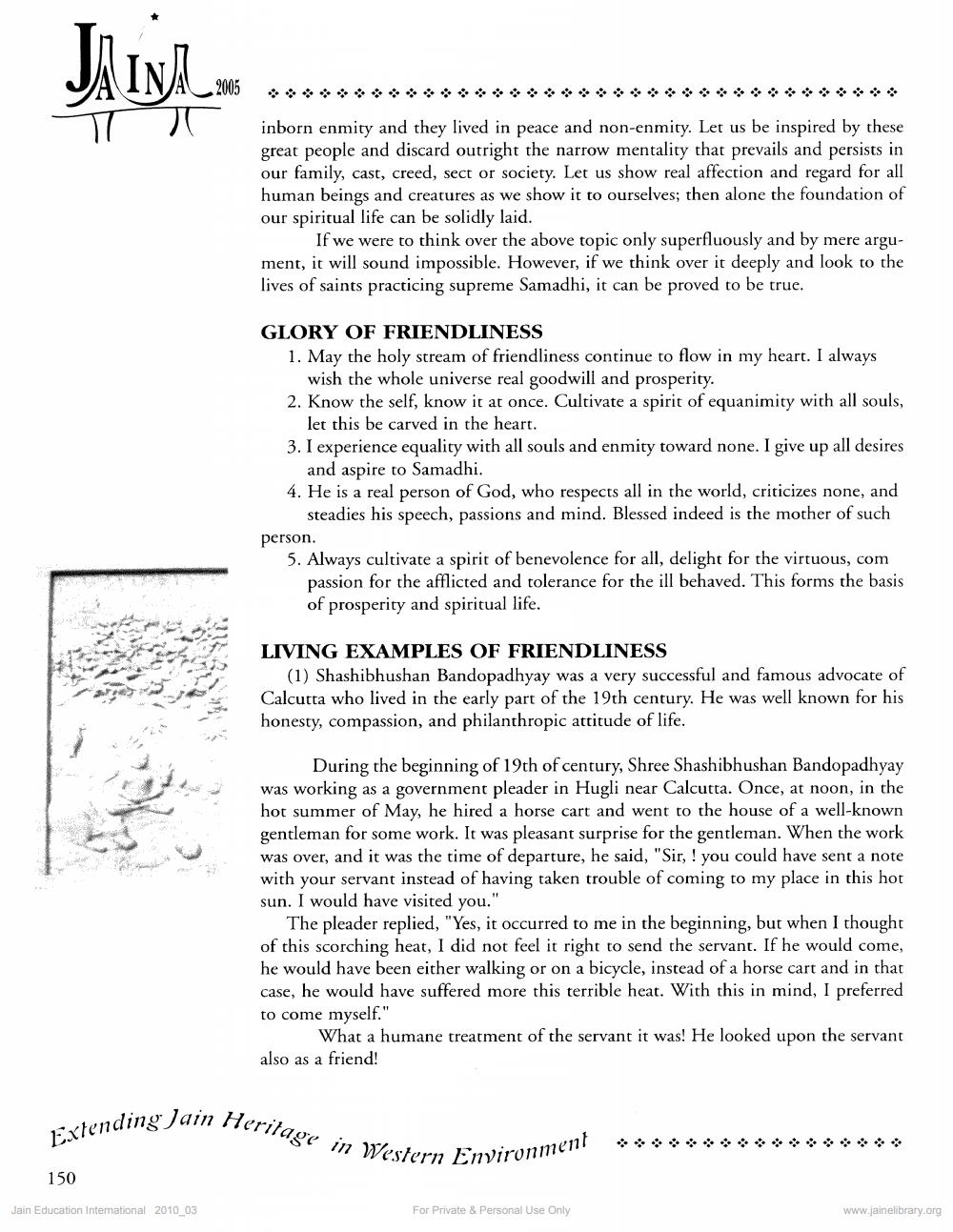________________
inborn enmity and they lived in peace and non-enmity. Let us be inspired by these great people and discard outright the narrow mentality that prevails and persists in our family, cast, creed, sect or society. Let us show real affection and regard for all human beings and creatures as we show it to ourselves; then alone the foundation of our spiritual life can be solidly laid.
If we were to think over the above topic only superfluously and by mere argument, it will sound impossible. However, if we think over it deeply and look to the lives of saints practicing supreme Samadhi, it can be proved to be true.
GLORY OF FRIENDLINESS
1. May the holy stream of friendliness continue to flow in my heart. I always
wish the whole universe real goodwill and prosperity. 2. Know the self, know it at once. Cultivate a spirit of equanimity with all souls,
let this be carved in the heart. 3. I experience equality with all souls and enmity toward none. I give up all desires
and aspire to Samadhi. 4. He is a real person of God, who respects all in the world, criticizes none, and
steadies his speech, passions and mind. Blessed indeed is the mother of such person. 5. Always cultivate a spirit of benevolence for all, delight for the virtuous, com
passion for the afflicted and tolerance for the ill behaved. This forms the basis of prosperity and spiritual life.
LIVING EXAMPLES OF FRIENDLINESS
(1) Shashibhushan Bandopadhyay was a very successful and famous advocate of Calcutta who lived in the early part of the 19th century. He was well known for his honesty, compassion, and philanthropic attitude of life.
During the beginning of 19th of century, Shree Shashibhushan Bandopadhyay was working as a government pleader in Hugli near Calcutta. Once, at noon, in the hot summer of May, he hired a horse cart and went to the house of a well-known gentleman for some work. It was pleasant surprise for the gentleman. When the work was over, and it was the time of departure, he said, "Sir, ! you could have sent a note with your servant instead of having taken trouble of coming to my place in this hot sun. I would have visited you."
The pleader replied, "Yes, it occurred to me in the beginning, but when I thought of this scorching heat, I did not feel it right to send the servant. If he would come, he would have been either walking or on a bicycle, instead of a horse cart and in that case, he would have suffered more this terrible heat. With this in mind, I preferred to come myself."
What a humane treatment of the servant it was! He looked upon the servant also as a friend!
12 Heritage in Wes
xtending Jain He
estern Environmen
150
Jain Education Intemational 2010_03
nternational 2010_03
For Private & Personal Use Only
For Private & Personal Use Only
www.jainelibrary.org




